Freethinking and Islam, not an unlikely coalition
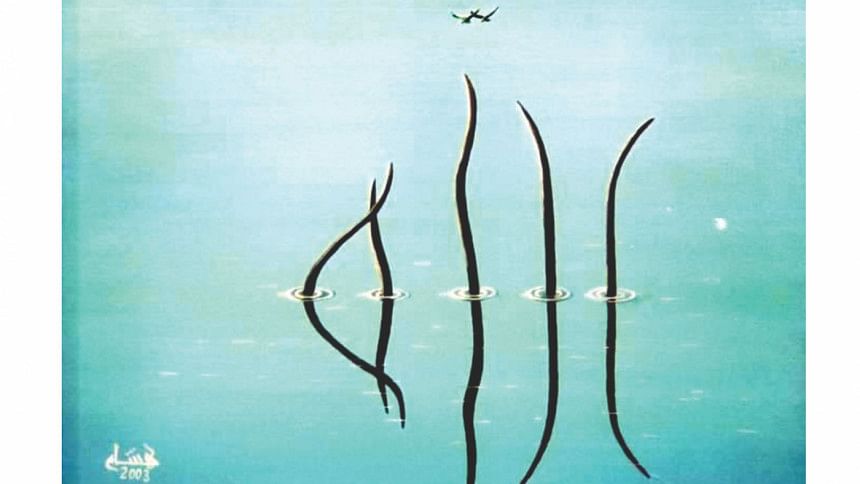
Today marks the 44th anniversary of the Pakistani army's systematic killing of pro-liberation Bengali intellectuals, of some of the brightest minds behind the political movement that fought for the very civil liberties that we, as Bangladeshis, now proudly claim to have.
In an attempt to wipe off the future leaders of a potential independent East Pakistan, the Pakistani army, along with the Al-Badr militias, murdered hundreds of Bengali intellectuals comprising of doctors, journalists, engineers, artists, academics and writers. The only danger that these martyred individuals posed to those in power was their recognition of the blatant suspension of Bengalis' political and economic rights, and their courage to fight for those rights.
Bengalis were seen as "lesser Muslims" by the ruling Pakistani junta according to whom the "Hindu-dominated" Bengali culture was incompatible with the ideals of Islam, and Bengali Muslims, in their struggle for independence, vehemently defied this exclusionary notion.
But after forty-four years of independence, the tumultuous question of the "secular" identity of the Bangladeshi, and by extension, of the nation, haunts us even today. The duality of the "Bengali culture" and the "Muslim identity" that the Pakistanis actively sought to create to preserve their domination hasn't eroded away, and is very much alive in a land that has historically had a strained relationship with the formation of a secular identity.
Discrimination against minorities
Following the outbreak of the Indo-Pakistani war in 1965, the military government of Pakistan instituted the Enemy Property Act (EPA), one of the most discriminatory laws in the world, designed to dispossess Hindus and other minority communities in East Pakistan of their property. Post-independence in 1971, each successive government of Bangladesh has retained provisions of this nefarious Act through the Vested Property Act (VPA) that has not only led to a large-scale appropriation of Hindu-owned land but also a severe decline in the Hindu population, the largest minority in the country.
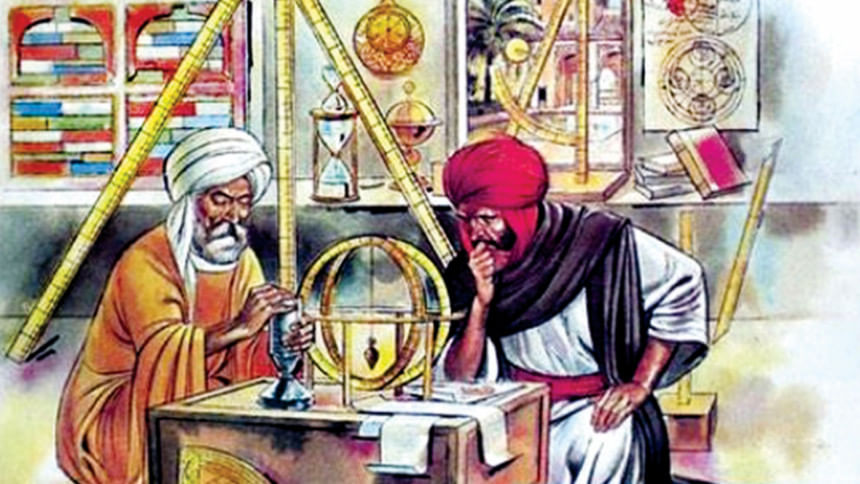
Then there's the 2012 Ramu incident, one of the worst instances of communal violence in recent memory, in which Buddhist monasteries, shrines and houses of Buddhists were destroyed by local mobs following the posting of a blasphemous image on Facebook under a fake account carrying a Buddhist name. Justice for the victims and their families is yet to be served.
More recently, blogger killings, attempts to murder Christian pastors and the Hussaini Dalan bomb blasts targeting the Shia community are further proof of the shaky ground on which the pillar of secularism stands today. With ruthless violence inflicted upon the "other" who doesn't seem to "belong" to Bangladeshi society because s/he doesn't fit the profile of a "Muslim Bengali", the space for religious and ethnic minorities is fast shrinking in a country that claims to be "secular" and whose fight for independence stemmed from the suppression of the very rights that are now being denied to these groups.
A rich heritage of freethinking in Islamic history
Whether it's the blogger killings or bomb blasts in a Shia mosque or a Hindu temple, the name of Islam is invoked to justify these barbaric acts that go against the very teachings of Islam. With no counter narrative to defend the tenets of the faith in sight, the cause of radical Islamists, whose motivations in reality have little to do with defending Islam, has been reinforced in the present day. This has given rise to the frequent abuse of the term “freethinking” which is falsely understood by many as something outside the realm of Islam, even though Islamic history is laden with centuries of freethinking philosophers and polymaths whose contribution to humanities, arts and sciences is nothing short of remarkable.
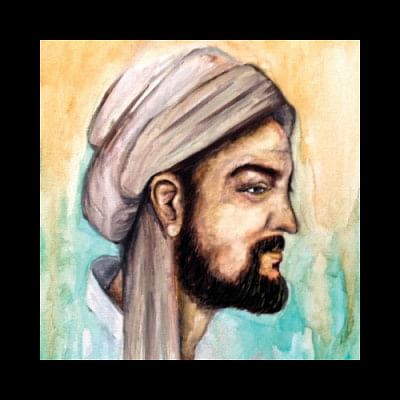
The Islamic Golden Age, the period in Islam's history that experienced cultural, economic and scientific flourishing between the 8th and 13th century, could not have been possible without the vast array of freethinking scholars, hailing from diverse cultural backgrounds, coming together to translate classical knowledge into Arabic. The teachings of the Quran and the Hadith that emphasise the importance of education and knowledge seeking influenced the exploration of the arts and the sciences at the time. Scientific knowledge gathered from conquered civilisations was translated into Arabic and Persian, and later into many other languages.
Alhazen, or Ibn-al-Haytham, is sometimes referred to as the "world's first true scientist". Alhazen, a devout Muslim who spent most of his life serving the Fatimid Caliphate in Cairo, is credited with discovering the method of testing a hypothesis scientifically, two hundred years before it was found to be true by Renaissance scientists. The anniversary of Alhazen's works on the optics, a major
scientific achievement, was celebrated this year during the International Year of Light.
Avicenna, or Ibn Sina, the Persian polymath, is one of the most notable thinkers of the Islamic Golden Age. In addition to his extraordinary contributions to philosophy and medicine, Avicenna wrote extensively on Islamic theology, metaphysics, logic, mathematics, physics, poetry and the likes. Avicenna was a devout Muslim who sought to reconcile the teachings of the Quran with reason and logic. Much of his work on Islamic theology formed part of the curriculum at religious schools until the 19th century.
Averroes, or Ibn Rushd, the Al-Andalus Muslim philosopher, sought to reconcile Aristotelianism with Islam. His works were so influential that they gave rise to a separate Islamic school of philosophy, Averroism. Averroes "was probably the most widely condemned thinker in the medieval Christian world" and has also been described as the "founding father of secular thought in Western Europe".
Fast forward to the 20th century, the name Ali Shari'ati springs to mind. The Iranian revolutionary and sociologist hailed as the "ideologue of the Iranian Revolution" posited an ideal of martyrdom that fused Islam with Marxism. His ideas inspired many young Iranians to lay down their lives in defiance of the Pahlavi regime.Proponents of Shari'ati's views represent those who oppose the religious establishment headed by clerical authorities but wish to incorporate progressivism within Islam.
Sisters in Islam (SIS), the Malaysian civil society organisation, has committed itself to promote women's rights within the framework of Islam. The organisation's works focus on the discriminatory laws and policies made in the name of Islam, and state policies under Malaysia's family and Shariah laws that attempt to subjugate women. The leaders of SIS have to the say the following: "We uphold the revolutionary spirit of Islam, a religion which uplifted the status of women when it was revealed 1400 years ago. We believe that Islam does not endorse the oppression of women and denial of their basic rights of equality and human dignity. We are deeply saddened that religion has been used to justify cultural practices and values that regard women as inferior and subordinate to men and we believe that this has been made possible because men have had exclusive control over the interpretation of the text of the Qur'an."
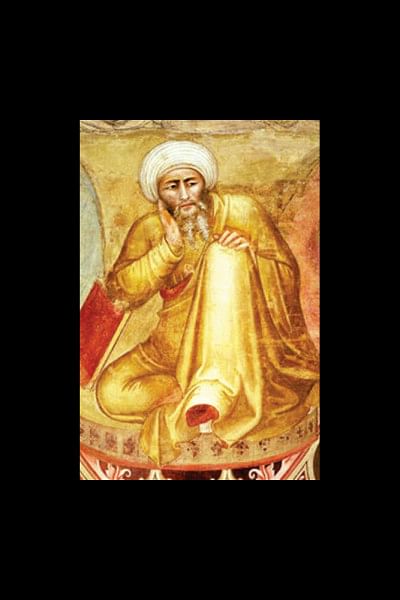
Distorted definitions
The notion that freethinking is antithetical to the concept of Islam is simply flawed. The belief that freethinking and Islam cannot co-exist is akin to ignoring history that has seen centuries of innovation and critical thinking by Islamic scholars who are, by no means, any less significant than non-Muslim thinkers and scientists to the advancements of modern civilisation.
Furthermore, the term "secular" seems to be grossly abused and misunderstood. In Bangladesh, anyone identifying with the term is labelled "godless", or an "atheist". Once again, this widely held belief has no basis and is dangerous. The fact is that the distortion of such terms is fuelled by the mainstream media, "progressive" leftists and radical Islamists alike.
Whether it's the brutal killings of the Bengali intellectuals in 1971, or the killings of bloggers in 2015, the vitality of freethinking in a democratic society can never be undermined. It is immaterial whether or not you think those bloggers deserved to die because of what they wrote. The fact of the matter is that the machete wielding thugs, who claim to defend Islam and shed blood to stop the ink from spilling, only prove their ignorance of the teachings of Islam that explicitly denounce such acts of violence and hate, and the long-lasting periods in Islamic history where diverse ideas thrived side by side.
Due to a severe decline in Islamic scholarship in Bangladesh, there seems to be no legitimate middle ground to reconcile the views of the "progressive" leftists, who appear to claim ownership of "secularism" and "freethinking", and radical Islamists, who claim ownership of the right to "defend Islam", as if somehow they have been bestowed the title of the rightful guardians of Islam.
Both camps, with their limited understanding of the ideals they seek to protect, facilitate the shrinking of the space in between where secularism and Islam can co-habitate, as history has proven time and again. The distortion of terms such as "secular" and "freethinker" is further fuelled by the mainstream media, leftists and radical Islamists alike, amidst an atmosphere of ignorance and limited knowledge about the origins and complexities of these terms.
A need for inclusive discourse
What is most problematic and what it all comes down to eventually is the imprisonment of thoughts, in whatever shape or form. It is, perhaps, the absence of a middle ground, due to the lack of critical thinking Islamic scholars that we've seen in the past, that shrouds the views of those who go on to kill in the name of Islam. It is also the absence of this middle ground that emboldens many so-called progressive leftists and radical Islamists alike to deny any possibility of secular ideals to thrive within the framework of Islam.
The right to think freely is inherently and necessarily interweaved with the right to free speech -- the right for which our martyred intellectuals laid down their lives. While we tend to frame the debate about free speech largely within the contours of Islam, we must also address the state structure and state policies that are increasingly encroaching upon this basic right. In looking for answers, a balanced discourse about the politics of secularism, freethinking and free speech on an inclusive foundation that exemplifies the pluralistic nation that we are is needed, and one that is constructively critical of all elements and beliefs in society.
The writer is a member of the Editorial Team at The Daily Star.
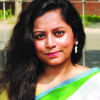
 For all latest news, follow The Daily Star's Google News channel.
For all latest news, follow The Daily Star's Google News channel. 



Comments